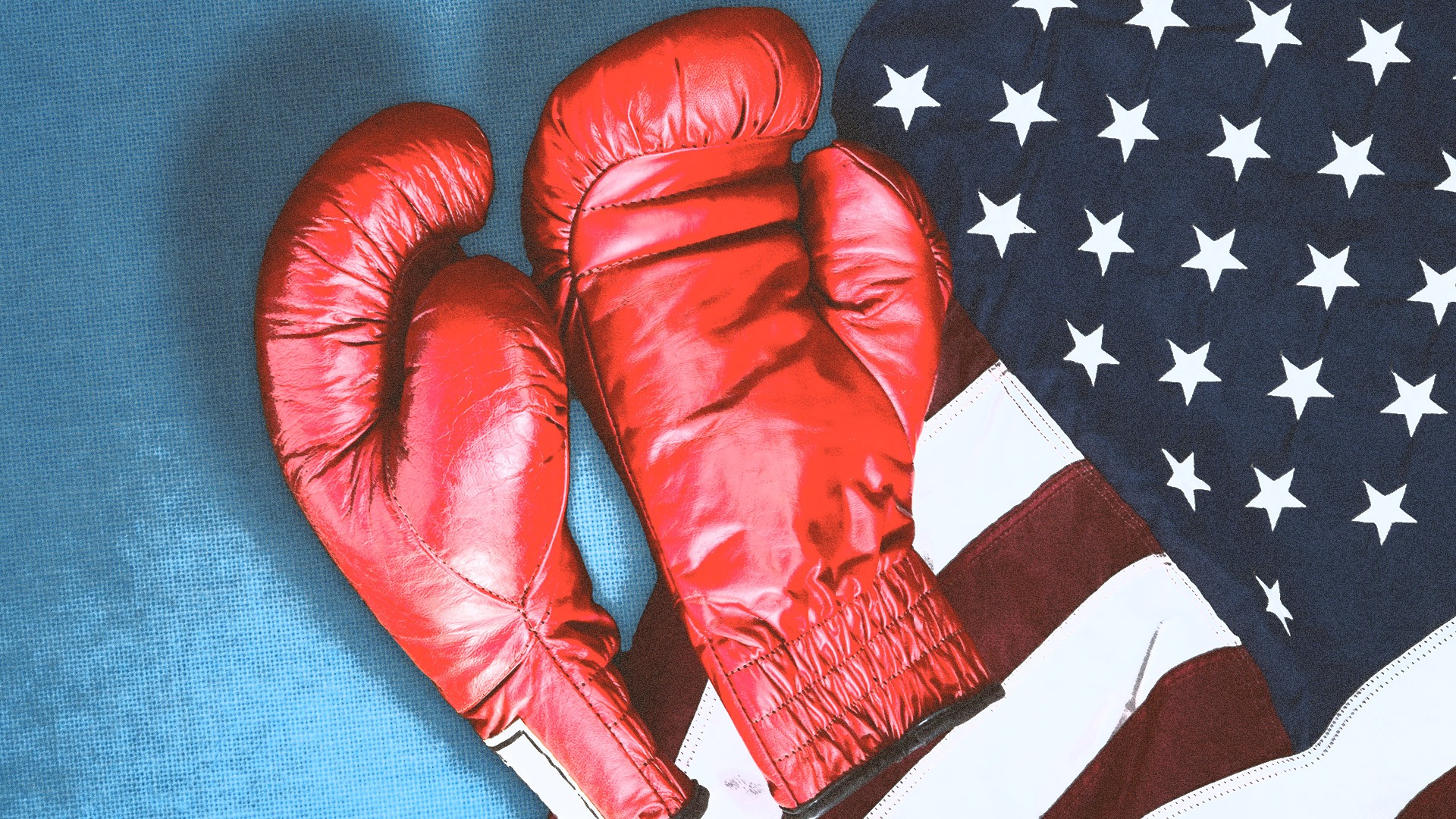Muhammad Ali: ‘I Am America’

“I am America,” Muhammad Ali famously declared. “I am the part you won’t recognize. But get used to me – black, confident, cocky; my name, not yours; my religion, not yours; my goals, my own. Get used to me.”
And get used to him we did. So much so that when Ali was memorialized after his death, millions of people throughout the United States and millions more across the globe joined in honoring the man known simply as “The Greatest.”
At a moment when Americans are deeply divided, it is tempting to focus on the safe, comfortable Ali as portrayed by the media in his later years: world icon, crippled by illness, lionized by leaders from across the political spectrum, honored by President George W. Bush with the Presidential Medal of Freedom.
What we need, however, is to be reminded of the passionate, combative Ali: “black, confident, cocky” fighter for civil rights, proud Muslim, conscientious objector, humanitarian and provocateur extraordinaire.
The former is a domesticated Ali, a celebrity we can whitewash without disturbing our self-satisfaction at “how far we have come” toward achieving racial justice, religious freedom for all, and equality of opportunity for every American.
The latter is the authentic Ali, the disruptive, courageous advocate for social justice who used his fame, wit and influence to speak truth to power. This is the hero we need, the hero we cannot and must not forget.
Today Ali is almost universally beloved, including by many who once reviled him.
But when he refused on religious grounds to fight the Vietnam War nearly 50 years ago, he quickly became the most hated man in America. He compounded his political heresy by joining the Nation of Islam and shedding his “slave name” to become Muhammad Ali.
Stripped of his world heavyweight title, convicted for draft evasion, he dedicated his life to fighting for religious freedom, decrying racial injustice and speaking out against the war.
In June 1971, the U.S. Supreme Court unanimously reversed his conviction, finding Ali’s conscientious objector claim to have been “religiously based and sincerely held.” Although he paid a high cost, Ali’s defiance strengthened and expanded our nation’s commitment to liberty of conscience.
How ironic, then, to hear words of praise for Ali from those who demonize American Muslims, turn a blind eye to racial inequality and police brutality, and ignore the devastation of poverty.
Ali’s life is not a salve for America’s conscience – it is a sharp prick that should inspire us to action. We don’t have to agree with his politics or share his religion to share his commitment to work for justice, religious freedom and equality for all.
After all, an American is not defined by race, religion or creed. An American is defined by adherence to the principles and ideals that flow from the Constitution with its Bill of Rights.
Liberty of conscience, freedom to dissent, the right to peacefully protest and petition – these are the fundamental, inalienable rights that animated Ali’s lifelong struggle for freedom and justice. Exercising those rights on behalf of the oppressed and marginalized is what makes him a true American hero.
“I am America,” Ali proclaimed.
For the sake of fulfilling the vision of a nation with “liberty and justice for all,” I hope and pray that he was right.
Charles C. Haynes is senior fellow for religious liberty for the Freedom Forum, and founder, Religious Freedom Center.
Athletes, Activism and the First Amendment: A Conversation With Nate Boyer
First Amendment Stories of 2024: A Year in Review
Related Content

